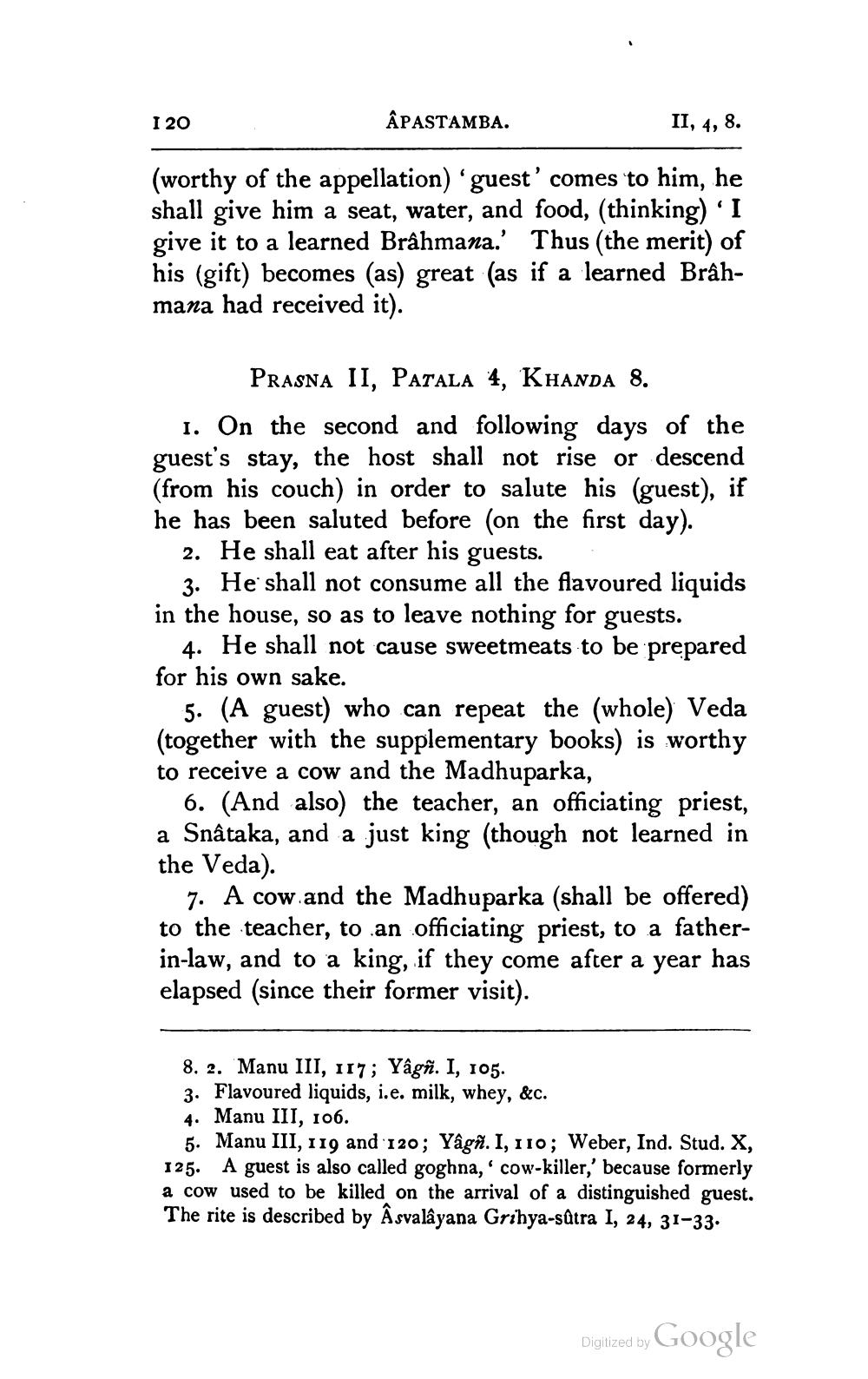________________
II, 4, 8.
(worthy of the appellation) 'guest' comes to him, he shall give him a seat, water, and food, (thinking) 'I give it to a learned Brâhmana.' Thus (the merit) of his (gift) becomes (as) great (as if a learned Brâhmana had received it).
I 20
ÂPASTAMBA.
PRASNA II, PATALA 4, KHANDA 8.
1. On the second and following days of the guest's stay, the host shall not rise or descend (from his couch) in order to salute his (guest), if he has been saluted before (on the first day).
2. He shall eat after his guests.
3. He shall not consume all the flavoured liquids in the house, so as to leave nothing for guests.
4. He shall not cause sweetmeats to be prepared for his own sake.
5. (A guest) who can repeat the (whole) Veda (together with the supplementary books) is worthy to receive a cow and the Madhuparka,
6. (And also) the teacher, an officiating priest, a Snâtaka, and a just king (though not learned in the Veda).
7. A cow and the Madhuparka (shall be offered) to the teacher, to an officiating priest, to a fatherin-law, and to a king, if they come after a year has elapsed (since their former visit).
8. 2. Manu III, 117; Yâgn. I, 105.
3. Flavoured liquids, i.e. milk, whey, &c.
4. Manu III, 106.
5. Manu III, 119 and 120; Yâgn. I, 110; Weber, Ind. Stud. X, 125. A guest is also called goghna,' cow-killer,' because formerly a cow used to be killed on the arrival of a distinguished guest. The rite is described by Asvalâyana Grihya-sûtra I, 24, 31-33.
Digitized by Google




